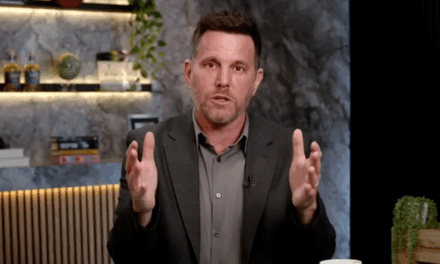In recent days, a number of far-left commentators and activists have stirred up significant controversy by suggesting that Texans have brought the recent flood disaster upon themselves due to their support for former President Donald Trump. This statement, which has drawn sharp criticism from various quarters, including supporters of former President Barack Obama, highlights the ongoing divisions in American political discourse and the complexities of attributing natural disasters to political affiliations.
This discussion was ignited after Texas was hit by severe flooding caused by a series of powerful storms. In the wake of this environmental disaster, some members of the far-left took to social media and other platforms to express their belief that Texas voters, many of whom supported Trump in the 2016 and 2020 presidential elections, are somehow responsible for the devastating impacts of the flooding. They argue that the political decisions made by Texans—such as rejecting climate science and voting against Democratic proposals for environmental protection—have directly contributed to the state’s vulnerability to natural disasters.
The remarks have not gone unnoticed. Supporters of Obama, many of whom are moderate Democrats, have pushed back against these claims, arguing that attributing such disastrous events to a state’s political choices is both inappropriate and simplistic. “To suggest that any group of people deserves a natural disaster based on their political views is not only incorrect but also morally reprehensible,” one longtime Obama supporter stated during a recent rally. “We need to come together to help those affected, rather than placing blame where it doesn’t belong.”
This position is not an isolated sentiment but rather part of a larger conversation surrounding the role of climate change and natural disasters. Climate scientists have emphasized that extreme weather events, including floods, can be linked to climate change, a phenomenon that transcends political affiliations and affects communities regardless of their voting choices. They argue that while certain policies can exacerbate the risks associated with climate change, it is inaccurate to assign blame to individuals based solely on their political inclinations.
Furthermore, the callousness of blaming a state for its voting patterns, particularly amidst a crisis where lives have been upended, has added fuel to the fire of political polarization. Critics argue that such narratives serve to deepen divisions rather than promote understanding and mutual aid. As hurricane survivor testimonials pour in, highlighting loss and resilience, the idea that political choice correlates with divine retribution becomes ever more troubling.
The fallout from these comments has reverberated beyond Texas. National organizations dedicated to disaster recovery and support have reiterated the need for unity in the face of adversity. Many advocate for bipartisan action on issues of environmental sustainability, arguing that it is crucial for American society to join in collaborative efforts to mitigate the impacts of climate change, rather than engage in divisive rhetoric.
In Texas itself, local leaders have taken to addressing the floods head-on, focusing on emergency response and recovery efforts rather than political finger-pointing. Governor Greg Abbott, a Republican, declared a disaster in affected areas, mobilizing state resources to assist with immediate recovery efforts. He underscored the importance of looking forward and working collectively to help those whose lives have been disrupted by the floods, stating, “Disasters know no ideology, no party affiliation; they impact all of us as Texans.”
The civil discussions led by both Republican and Democratic leaders are being reinforced by grassroots organizations that aim to provide relief to families displaced by flooding. These organizations, often working across political lines, emphasize solidarity over division. Such initiatives are critical in providing assistance and relief to affected individuals, while fostering a sense of community in a time of crisis.
Yet, the narrative from some far-left commentators still lingers and demonstrates a troubling trend in contemporary political engagement, where opportunism can overshadow compassion. Disasters offer a stark reminder of our shared humanity, calling individuals to act with empathy rather than engage in political warfare. The inclination to use a crisis to score political points is rejected by many as a step backward for society.
Moreover, several political experts point out that this might be indicative of a broader issue within some factions of both parties. The inability or unwillingness to separate people from their political choices can resonate with voters, alienating those who may otherwise be open to cooperative dialogues. Effective leadership, they argue, lies in bridging gaps and offering understanding rather than dividing groups through blame.
As the recovery efforts continue, there remains a pressing need for all Texans and Americans alike to focus on resilience and rebuilding. Conversations about climate change should remain rooted in facts and grounded in science and compassion rather than emerging as vehicles for political division.
In the coming weeks, as recovery efforts unfold and analyses of the flooding are undertaken, it will be essential for policymakers at all levels to prioritize listening to communities affected by climate-related disasters. It should serve as a collective impetus for policymakers to work hand-in-hand with scientists, environmentalists, and citizens alike to prepare for future challenges while reducing the vulnerabilities that many regions, including Texas, continually face.
Moving forward, many hope that discussions about political beliefs, environmental policy, and disaster preparedness can integrate lessons learned from this event to advocate for smarter, more collaborative governance. It is in these moments, particularly as communities rally to address the aftermath of a shared disaster, that the opportunity exists to cultivate a united front against the apolitical nature of climate change, steering conversations toward constructive solutions for the future.
While the politics surrounding the event may shift and change in the years ahead, the fundamental aim of providing support and rebuilding lives must take precedence over institutional disagreements. Genuine concerns for the well-being of people affected, irrespective of their political affiliations, should dominate the narrative and guide responses to disasters, driving home the belief that humanity and compassion triumph over divisiveness.
In the end, the stakes are high—not just for Texas, but for the whole nation in facing the challenges of an increasingly unpredictable climate. Working together, setting aside differences, and addressing the root causes of climate change will be critical for resilient communities now and in the future. The current instance serves as a stark reminder of the need for compassionate dialogue, unity, and above all, action.
































